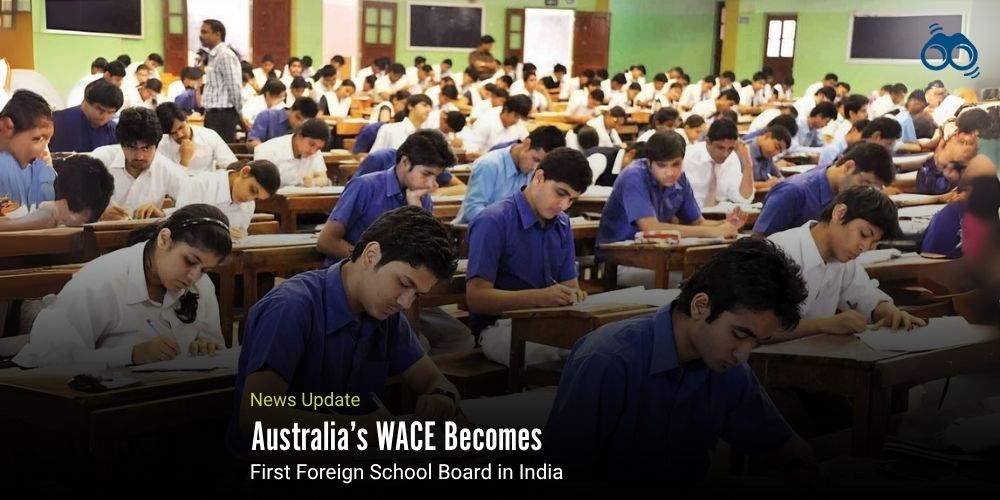India Welcomes First Foreign Government-Backed School Board Under NEP 2020 Framework
WACE Introduces Australian-Style School Curriculum to Indian Partner Schools
Australia’s Western Australian Certificate of Education (WACE) has officially commenced operations in India, marking a significant milestone in international education. This development makes WACE the first foreign government-supported school board to be introduced in India in over twenty years, reflecting Australia’s expanding presence in the country’s education sector.
This initiative follows the establishment of Deakin University and the University of Wollongong, which became the first foreign universities to set up campuses in India. The introduction of WACE further strengthens Australia’s commitment to academic collaboration, offering Indian students access to globally recognised qualifications. With formal recognition from the Association of Indian Universities (AIU), WACE aims to provide high-quality education, aligning with India’s evolving academic landscape and international standards.
WACE has secured formal equivalence for its Class X and XII qualifications from the AIU, allowing its credentials to be recognised across India. This approval enables Australian-style education to be delivered through partner schools under the Western Australian International School System (WAIS) framework. According to Ange Smith, Principal Consultant for International Education at the School Curriculum and Standards Authority (SCSA), WACE has been active internationally since 1987 and has expanded globally since 2019. The board has worked with several governments to achieve formal recognition, with India being described as a rigorous yet rewarding market. Following AIU approval, efforts have focused on identifying Indian partner schools, with WACE now operating in 16 countries.
Smith highlighted that India’s National Education Policy (NEP) 2020 significantly influenced WACE’s entry strategy, with curriculum mapping revealing strong alignment in areas such as holistic development and skill integration. She explained that WACE students typically take five subjects in Classes XI and XII, with an optional sixth subject. While English is compulsory, only the top four ATAR subjects are considered for university admission. The Australian Tertiary Admission Rank (ATAR) is calculated equally from final exams and school coursework, promoting balanced performance and reducing academic pressure.
To meet local academic requirements, WACE is developing a Class X board exam for Indian students. Syed Sultan Ahmed, Chairperson of the Association of International Schools of India, described WAIS as an affordable alternative that bridges the CBSE and Cambridge systems, requiring only a 15–20% fee increase over standard CBSE rates. He noted that WAIS offers global pathways without the steep costs associated with International Baccalaureate (IB) programmes. WAIS-affiliated schools have already launched in Bengaluru and Bidar.
Ahmed further emphasised that the ATAR system streamlines both certification and university eligibility, with students opting for Western Australia becoming eligible for a Premier’s Bursary of AUD 20,000. Additionally, the WAIS curriculum focuses on seven core capabilities, including literacy, numeracy, ICT, ethics, civic responsibility, critical thinking, and intercultural understanding. The introduction of WACE in India marks a new phase in international education, offering students globally recognised qualifications while aligning with India’s evolving academic framework.
Editor’s Note:
The introduction of Australia’s Western Australian Certificate of Education (WACE) in India marks an important moment in global education. For over twenty years, no foreign government-supported school board has entered India, making this a significant step in strengthening academic collaboration. With WACE now formally recognised by the Association of Indian Universities (AIU), students can access globally accepted qualifications, improving their chances of pursuing education and careers worldwide. This expansion comes at a time when international education systems are increasingly interconnected. Australia's decision to deepen its presence in India, following the entry of Deakin University and the University of Wollongong, shows a strong commitment to building long-term partnerships. More countries should take note; supporting such initiatives helps create better academic opportunities, stronger research networks, and global-ready graduates.
Skoobuzz highlights that education should never be limited by borders. WACE’s arrival signals that the future of learning is about collaboration, adaptability, and access, benefiting students and institutions alike.














0 Comments (Please Login To Continue)